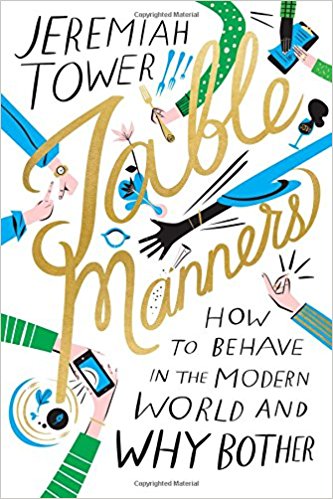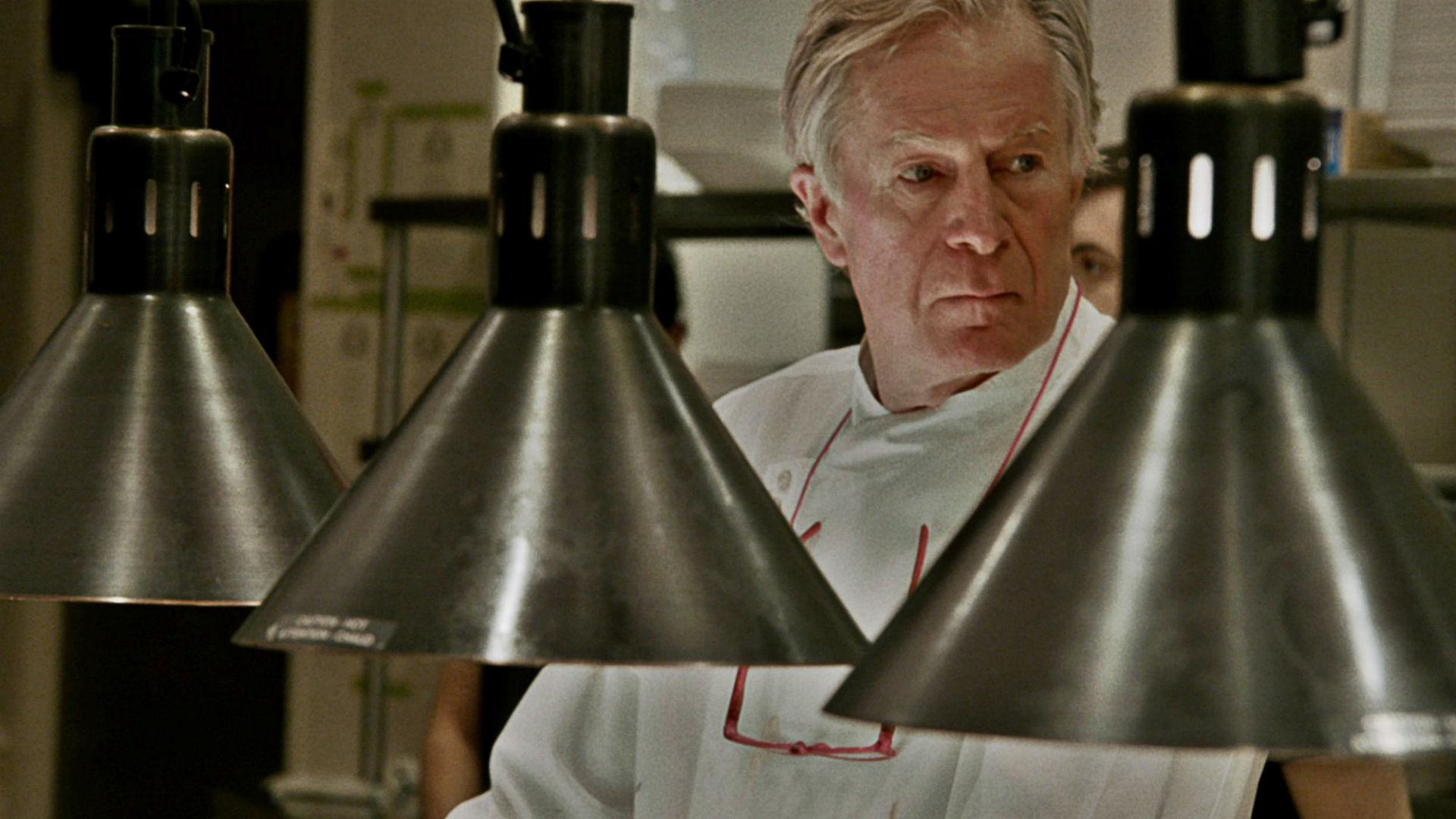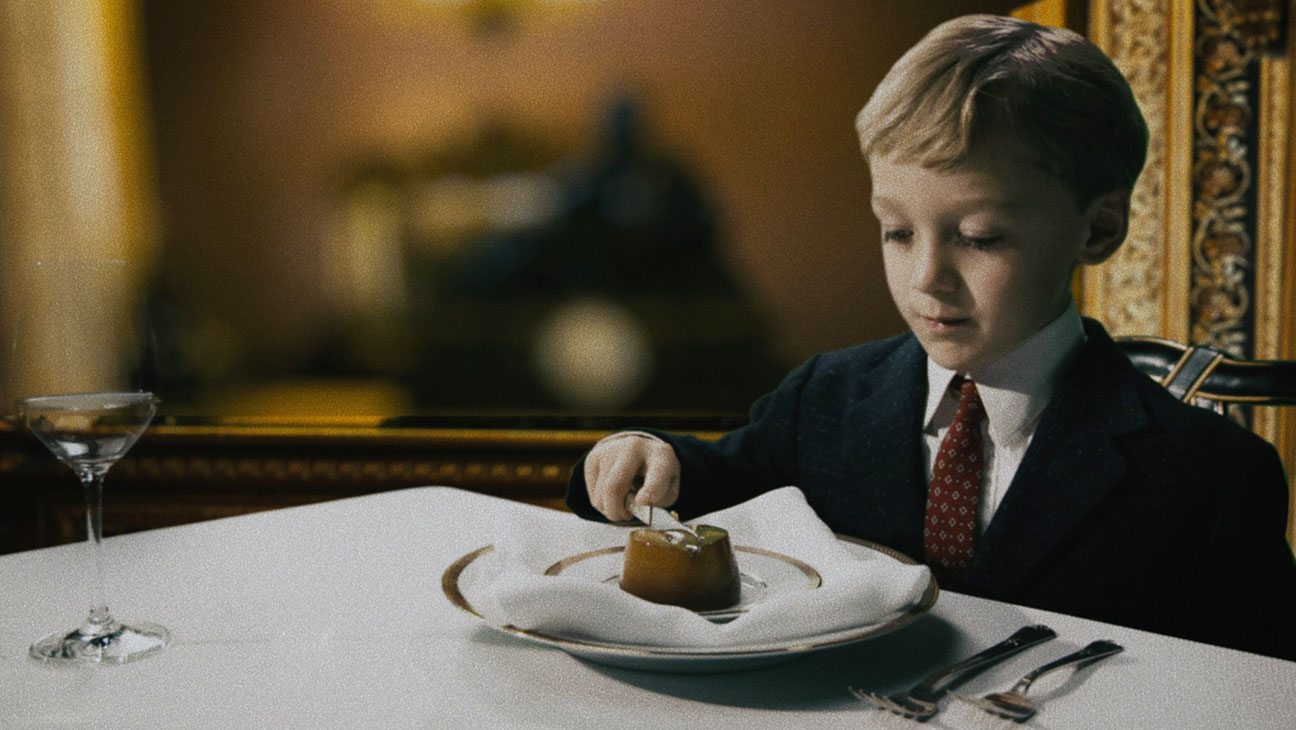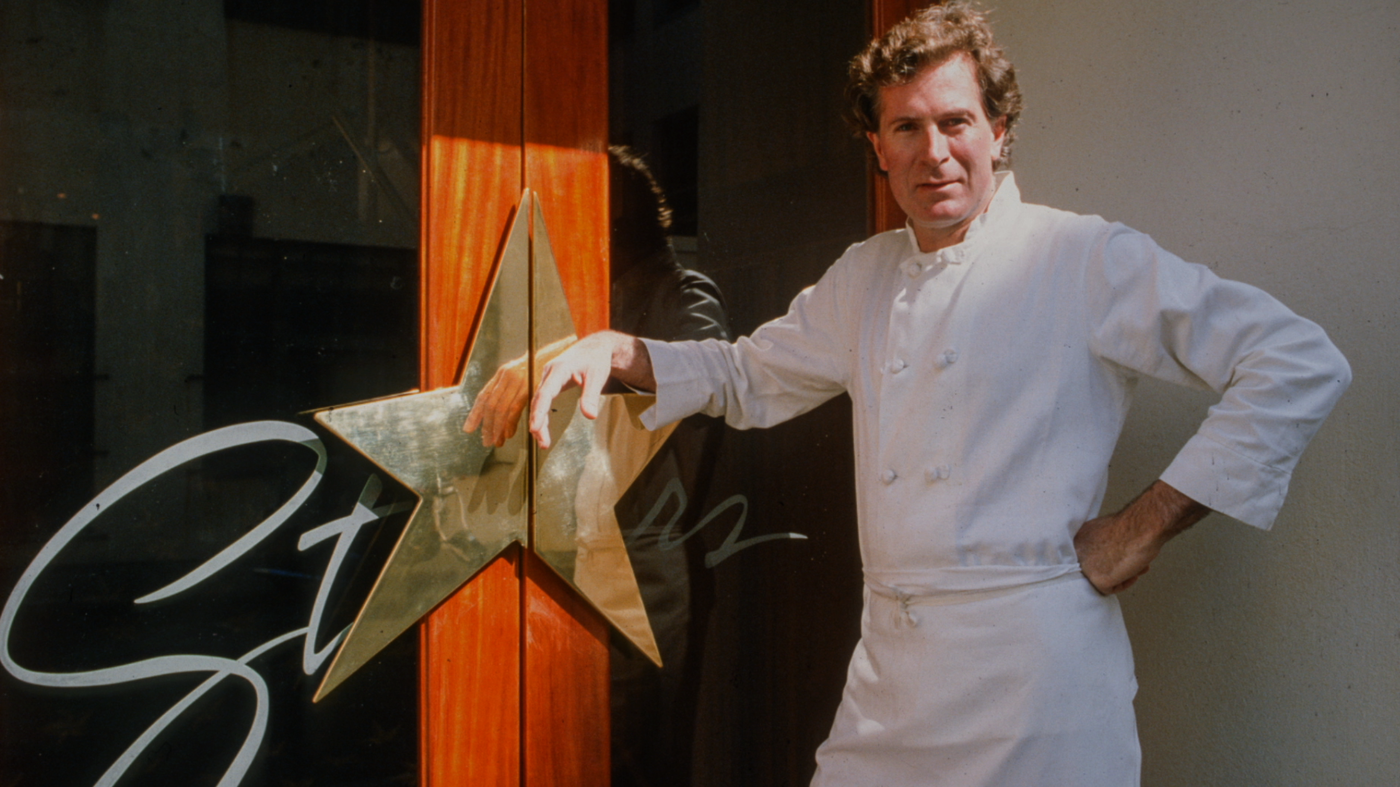Jeremiah Tower was born into wealth and privilege and knew the world of haute cuisine. He was often left to his own devices, as he traveled the world with his parents. He ate alone in luxury dining rooms and found solace in eating visiting the kitchen and adopting the staff. He experienced the thrill of excellent food, quality service and top notch hospitality. Tower’s young imagination was fired; he remembered the dishes he ate. Years later in 1972 he found himself the co-owner and executive chef at Chez Panisse now known as the legendary home of California Cuisine. He’d never cooked professionally but founder Alice Waters gave him full reign of the kitchen and under his watch the place blossomed. He made the dishes he remembered from the liners and hotels. Chez Panisse became an international sensation starting the local food movement, using farmers’ produce, meat, dairy and oils. Sadly, Tower was never acknowledged by Waters and eventually left and founded the Stars Restaurant in San Francisco and then, poof! He was gone. He disappeared for fifteen years. He resurfaced at New York’s Tavern-on-the-Green and disappeared again. We had the chance to speak with this talented and mercurial man the subject of Lydia Tenaglia and Anthony Bourdain’s documentary.
I love that you wrote a book on the importance of table manners (Table Manners: How to Behave in the Modern World and Why Bother) as well as cookbooks. What prompted that?
 That was one of the chance and chaos moments in my life. I’d been pursuing a publisher I’d been pursuing for a book had said no. I wanted to talk about another one. I was at Penn Station going up the escalator when I was cut off by someone, and I was angry. I was tempted to take it out on them but then I thought about why I let it raise my blood pressure. Then the elevator came down and they stopped right there blocking me and I said just get out of the way. I told the publisher and wondered why I was so rude and he said there’s your story! Write a book about manners. I said why, no one cares about them and he said that’s the point!
That was one of the chance and chaos moments in my life. I’d been pursuing a publisher I’d been pursuing for a book had said no. I wanted to talk about another one. I was at Penn Station going up the escalator when I was cut off by someone, and I was angry. I was tempted to take it out on them but then I thought about why I let it raise my blood pressure. Then the elevator came down and they stopped right there blocking me and I said just get out of the way. I told the publisher and wondered why I was so rude and he said there’s your story! Write a book about manners. I said why, no one cares about them and he said that’s the point!
You have a different standard for food and etiquette and the experience of dining because of your childhood experiences in hotels and ocean liners. How did they s hape you?
hape you?
I was very lucky and they gave me a huge advantage as a chef. It was one of the many benchmarks I went through even before I thought of being a professional chef. The first day at Chez Panisse they handed me the kitchen and I just made a dish with chicken, cream, mushrooms and tarragon because Id tasted those things in France and Italy. I found my way to make decent food. You see the scene in the film of the little boy with his fingers in the croquembouche. It was an undirected moment. He looks up at the camera with his eyes rolling at the pleasure of the caramel.
Your childhood also shaped you to be comfortable alone. So why were your friends in the film so shocked that you’d disappeared?
 These people had known me forever, from childhood to college and after knowing me so well, they all turned into psychoanalysts. They think they can interpret it and don’t know why they did that. Anthony Bourdain who has also had an intense life understands it, completely, like J.D. Salinger. I’d had thirty years of intensity and wanted quiet.
These people had known me forever, from childhood to college and after knowing me so well, they all turned into psychoanalysts. They think they can interpret it and don’t know why they did that. Anthony Bourdain who has also had an intense life understands it, completely, like J.D. Salinger. I’d had thirty years of intensity and wanted quiet.
Why Mexico?
Again a complete chaos and chance experience. After the New York the earthquake and 9/11 and I lived close to the site and after a year of the stuff that went on afterwards I thought I don’t want to live there so I moved to New Orleans and Katrina hit. I thought I’d take a week and dive in Cozumel. I was homeless and possession-less and 40 margueritas later I’m on a tropical island so it was fine, I’ll stay. Two months later Hurricane Wilma hit. In Cozumel there were no earthquakes, no terrorists even if there were hurricanes. I lived in the Medellin region and the traditional Mayan food was fabulous.
The idea of celebrity chef isn’t new but it’s heightened these days. Is that a positive?
It can be negative, like the infamous English chef who has shows and he completely insults his students, Gordon Ramsay. That’s disgusting but the power of a star chef to make demands of the market for perfect ingredients to make more and more perfect is good, it’s about food liberation, instruction and it can be entertaining.

If I want to see someone’s eyes glaze over all the things I tell them that the food you find in Whole Foods did not exist at all in 1972 and 1973. That’s why we had to go and look to find things growing in the garden, and the beef in Sonoma for cassoulet. No one believes it now after the food revolution that it ever was that way. It’s impossible for people to understand that.
When were you aware that you’d created California Cuisine?
I came to Chez Panisse not as a professional cook and looking back I had no idea at the time that it would take off. Another thing I say when I want to see someone’s eyes glaze over is all I was trying to do was fill the restaurant. I was earning $400 a month and my ambition was to earn $500 but I could only do that by filling the restaurant.
To encourage people to come to the restaurant I had done these regions around France menus every month and I ran out of regions. So I did Corsica and I didn’t have a clue and cooked a bad meal. That meal that night, I never want to experience that again.
It came to me then, why am I beating myself and my customers up by forcing French meals with these ingredients. And then – wait a minute! There is live trout in Big Sur, prawns in Monterey Bay, my friend Laura made goat cheese. I made a list of things I could get fresh and the California menu. It was the first time a menu included name of the farm, the farmer and sources.
Finally what’s so great about cooking?
It restores mental health apart from the body and if you have someone you love it brings them the same thing.
by @annebrodie
BFCA BTJA AWFJ TFCA FIPRESCI